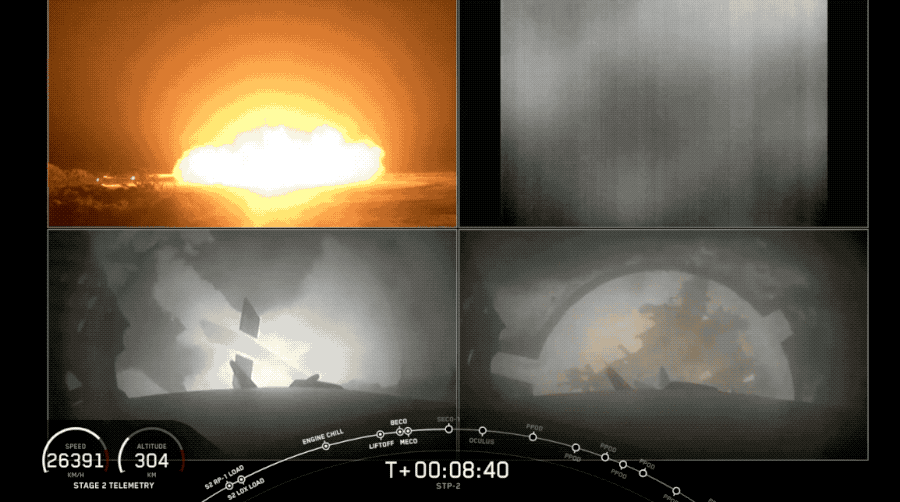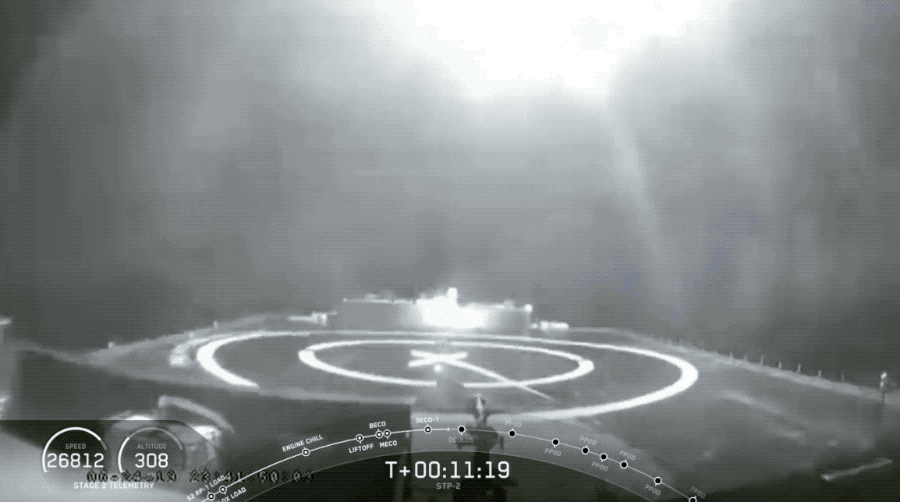SpaceX has succeeded in launching its third mission with the Falcon Heavy high-capacity rocket it first launched successfully last year. The rocket’s STP-2 mission took off from Kennedy Space Center in Florida towards the end of a four-hour launch window that opened at 11:30 PM EDT on Monday, with liftoff taking place at 2:30 AM EDT on Tuesday after the launch was pushed back so that the ground crew could complete “additional ground system checkouts.”
The launch was a first for SpaceX in a number of different ways – it’s the first night launch for Falcon Heavy, which treated observers to a unique light show. It’s also the first time SpaceX has launched the Falcon Heavy with flight-prove boosters, and it used two: The boosters on either side of Falcon Heavy’s central rocket were used on the Arabsat-6A mission that launched on April 11.
Finally, it’s the first time that Falcon Heavy has carried a payload for crucial SpaceX customers – including the U.S. Air Force, the Department of Defense, NASA and more. To accomplish its mission, it’ll continue carrying out a series of maneuvers over the next several hours to deploy its payload of 24 different spacecraft into their three separate target orbits. You can follow along as the stream updates the mission progress below, and we’ll update this post with the ultimate results.
Key missions include four separate NASA technology research missions, including JPL’s demonstration of an ultra precise and compact atomic clock designed for deep space use that could transform space navigation. Crowdfunded spacecraft LightSail 2 is also going up on this ride, launched by Bill Nye-led space exploration non-profit The Planetary Society.
SpaceX will now attempt to land and recover all three boosters, and it’ll also be trying to catch the fairing from the Falcon Heavy’s cargo capsule using a barge positioned at sea that will attempt to navigate a net under it as it falls back to Earth. All three boosters separated as planned from the Falcon Heavy second stage, and the second stages both landed at LZ-1 and LZ-2, the ground-based landing zones SpaceX maintains at Florida’s Cape Canaveral Air Force Base.

The third, centre booster was travelling so fast for this launch that it had to attempt the most challenging landing yet for a SpaceX booster, landing much further at sea and dealing with a lot more speed than ever before. This attempt was not successful, and you can see in the clip below that it missed off the side of the SpaceX drone landing ship and exploded on impact with the ocean.

The second stage did reach orbit, however, which is a successful launch in terms of Falcon Heavy’s primary mission. Check back later for updates on how each satellite payload deployment went.
Developing…
from TechCrunch https://tcrn.ch/2Yb7l2H

No comments:
Post a Comment